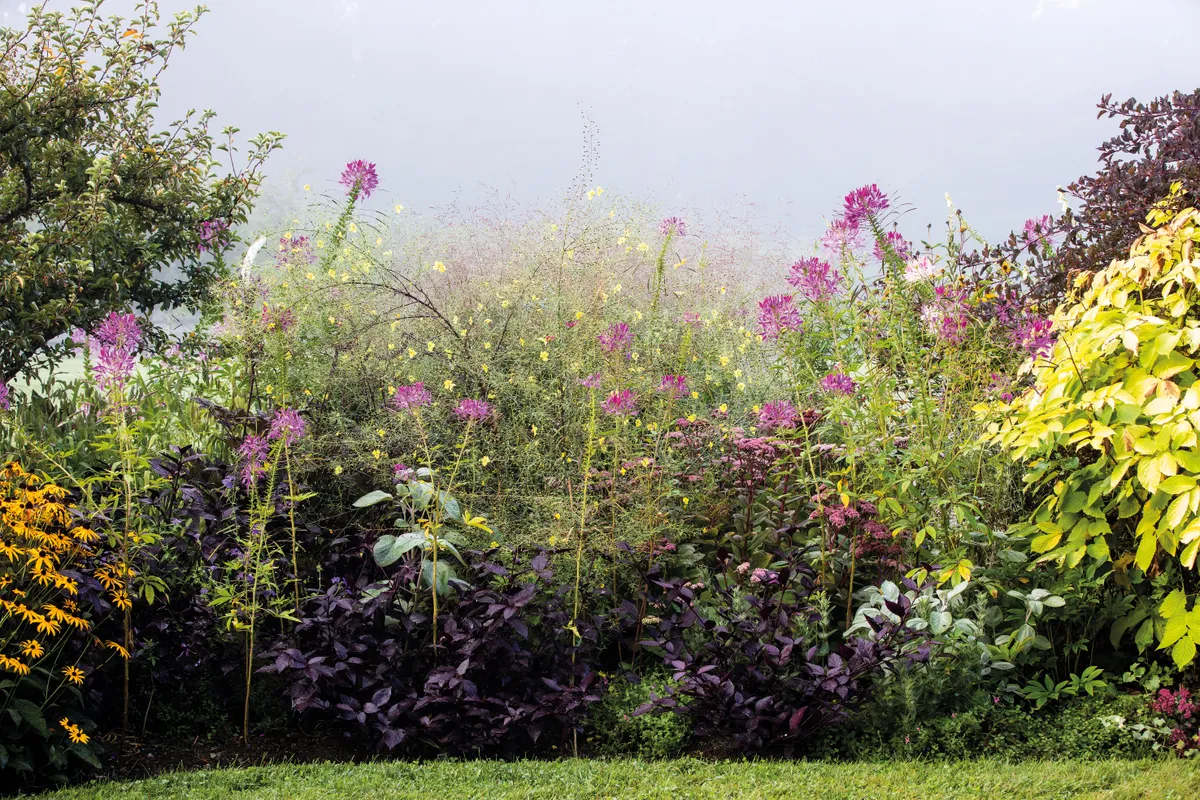Helen O’Donnell would have you believe that she is not really a designer; she just grows and sells interesting plants, some of which she places in other people’s gardens. “A lot of people who know me as a grower don’t know me as a designer,” she says. “I’m shy about that part of me.” Of this property, half a mile from her nursery at Bunker Farm in southern Vermont, Helen suggests that she takes care of it, before admitting that she designed all of it. She emphasises that even though she has grown most of the plants introduced around this rural property over the past seven years, the creativity is very much a group effort, with her co-gardener Laurie Merrigan and her client, Rita Ramirez.
The house where Rita lives, with her husband Tom Bodett, is in the middle of a hay field, surrounded by further hay fields and woods. With views over distant hills, the site is pleasantly breezy without being too windy. Back in 2009, Helen had helped to plant the area by the pergola, under the guidance of Siena MacFarland. Over the next four years, everything changed: the planting was dug up and stored in the woods (to make way for a series of pools in the garden), and Siena moved away. Before eventually taking over, Helen had spent two separate months living and working at Great Dixter, meanwhile acquiring a large farm with her sister and their respective husbands. The farm is collaborative and so is this garden. Anyone who has visited Great Dixter on a weekday will have seen the head gardener Fergus Garrett moving around the borders with groups of students, in deep discussion. Helen’s co-gardener Laurie is also a Dixter alumna, and with Rita they continue this spirit of debate and inquiry. “During the growing season, we meet weekly to talk, garden and plan,” says Rita. “I’m selfish about our gardening days; gardening like this has become one of my greatest joys.” See more of the collaborative garden Helen has created with Laurie and Rita below.
The garden in brief
What Breezy hilltop garden, surrounded on all sides by hay fields. Where Vermont, USA. Soil Clay, with new soil brought in. Size Four acres, with 1,500 square metres for the pool and pergola gardens. Climate Hot summers, cold winters and snow from December to March. Hardiness zone USDA 5b.

The view from under the canopy of a honey locust tree (Gleditsia triacanthos) reveals the 21st-century house and garden built in the middle of a hay field, with boundaries blurred by a purple haze of meadow rue (Thalictrum rochebruneanum) and tall tufts of Molinia caerulea subsp. arundinacea ‘Windspiel’.
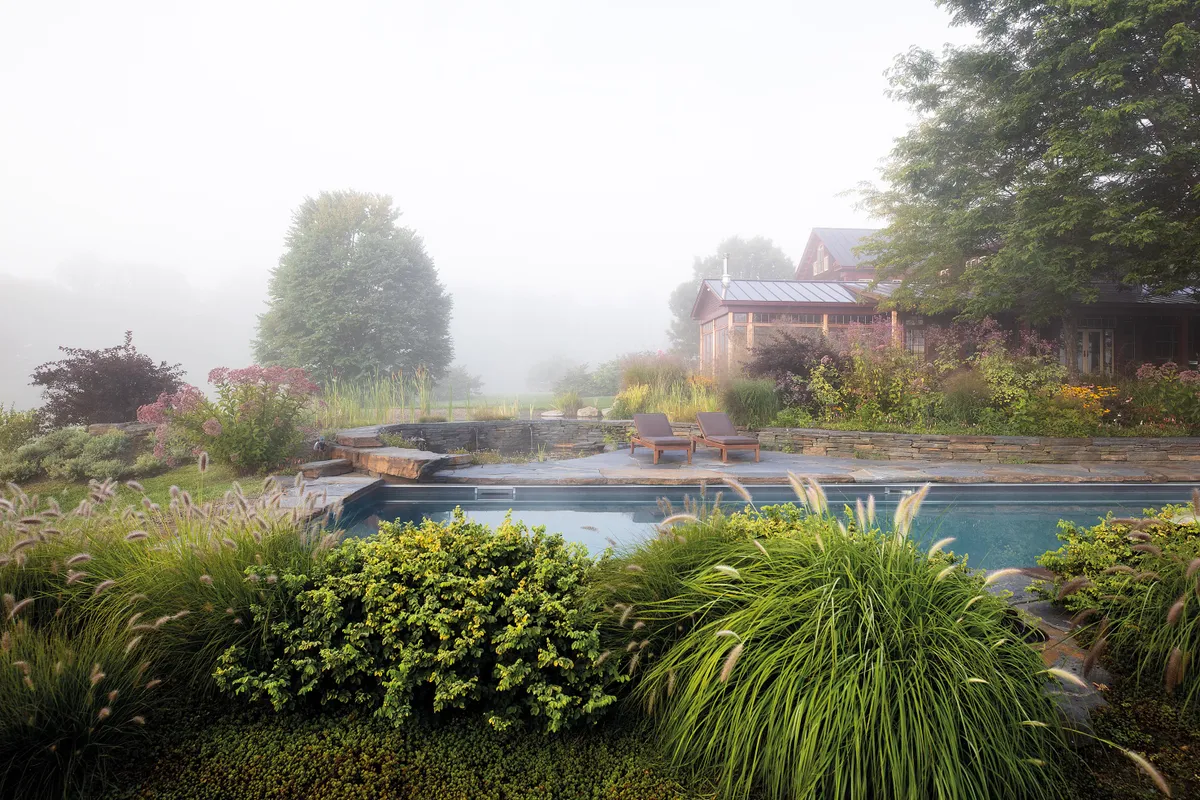
Pennisetum alopecuroides contrasts with the pea-like foliage of Indigofera kirilowii, introduced by Helen’s client, Rita. The Joe Pye weed (Eupatorium maculatum) by the pond self-seeds freely and is reined in Helen and co-gardener Laurie.
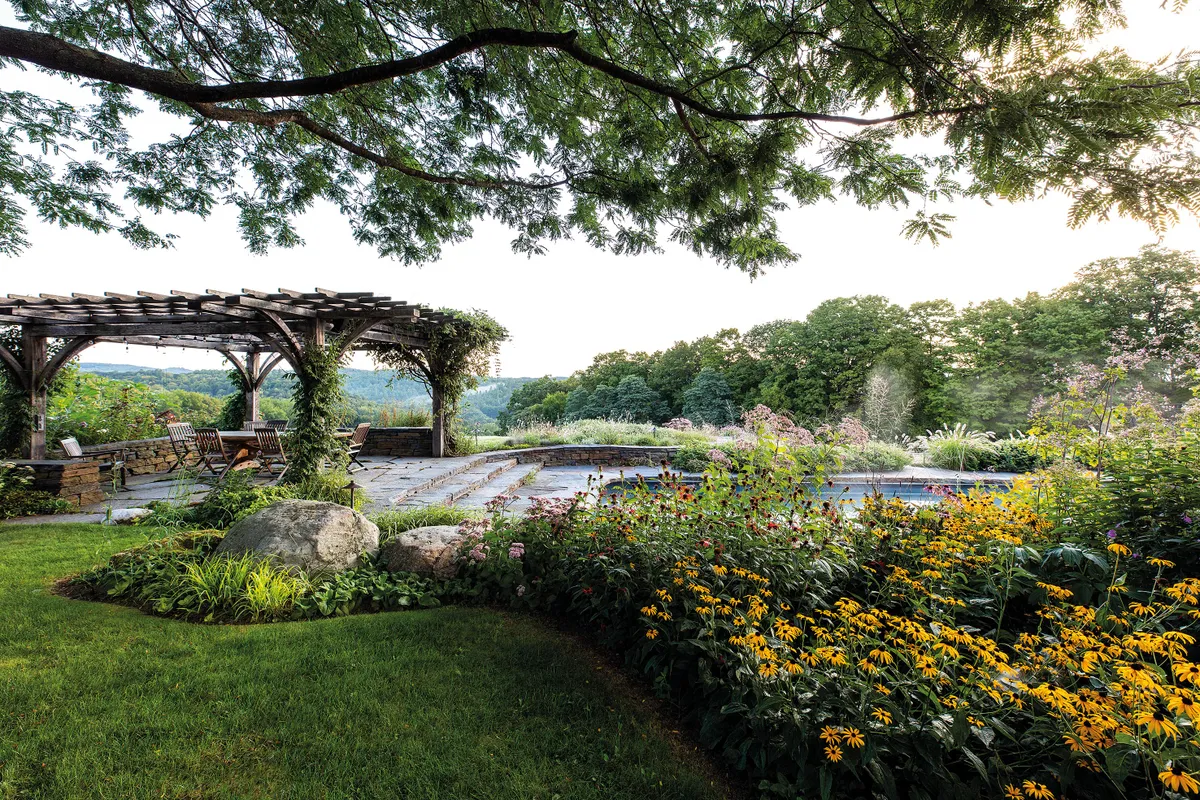
Looking north towards Vermont’s hills, a stout pergola presides over a stone terrace planted with three Wisteria frutescens ‘Amethyst Falls’ and a more vigorous Wisteria sinensis. Rudbeckia fulgida var. sullivantii ‘Goldsturm’ runs through the foreground.
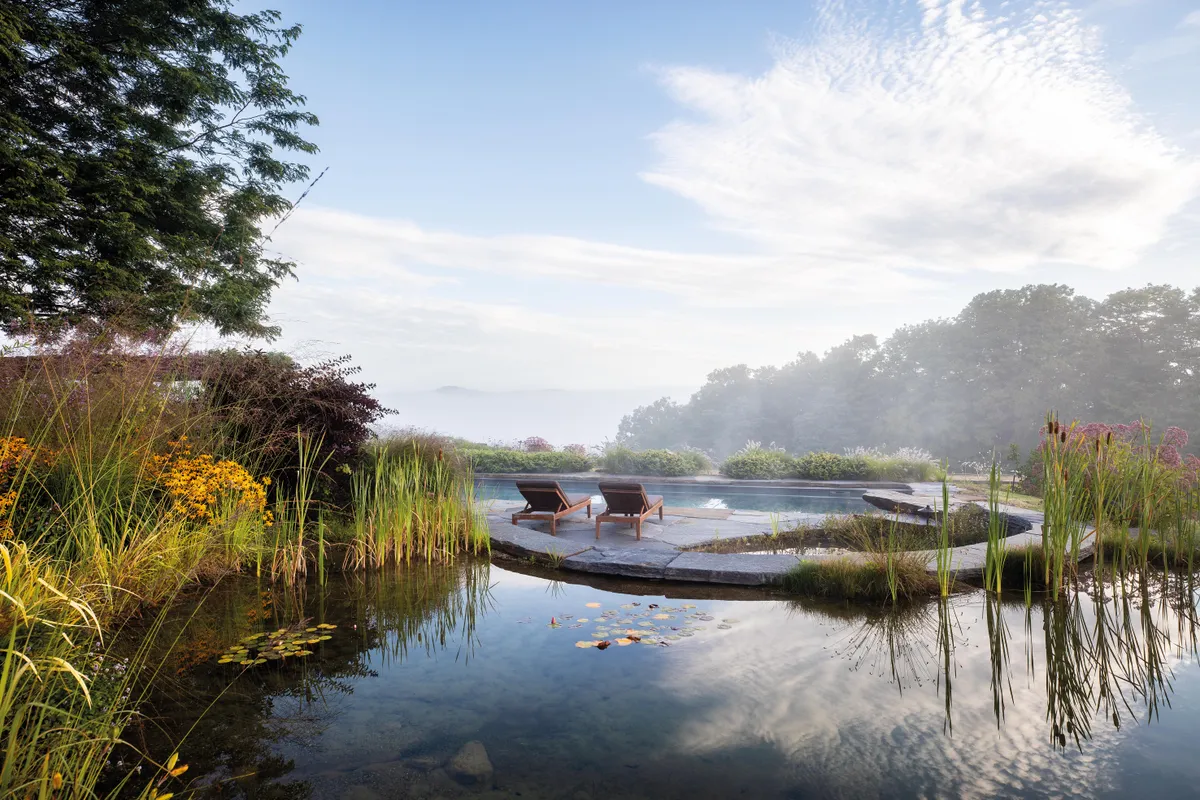
With water cascading through two ponds, the view of the swimming pool has its own soundscape. Physocarpus opulifolius Summer Wine (= ‘Seward’) makes a dark backdrop for Rudbeckia and Molinia, running freely around the pond’s edge with common bulrush.
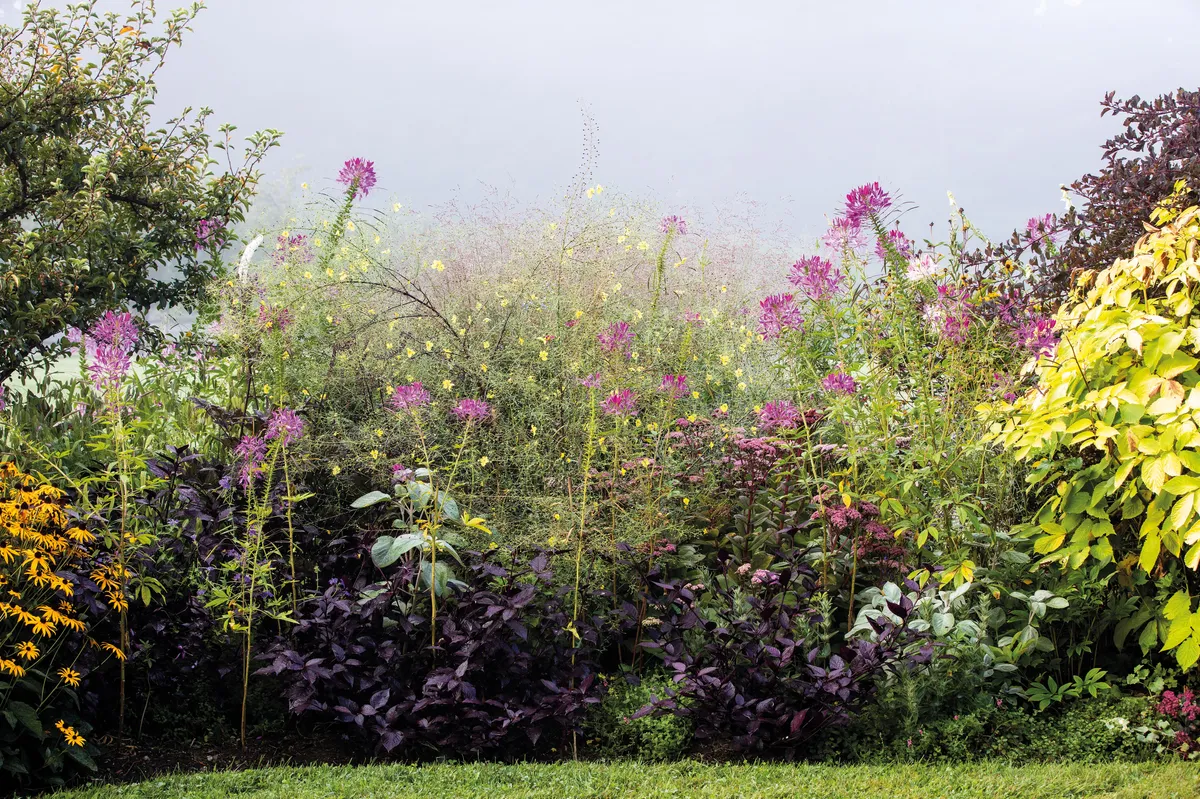
Apart from Hylotelephium ‘Matrona’ all of these plants are annuals, grown by Helen from seed. Joining Cleome hassleriana ‘Rose Queen’ and Cleome hassleriana ‘Pink Queen’, the unusual Verbascum roripifolium, creates airy accents of yellow. Alternanthera dentata ‘Purple Knight’ and Coleus argentatus ‘Silver Shield’ make a heavier foundation of foliage
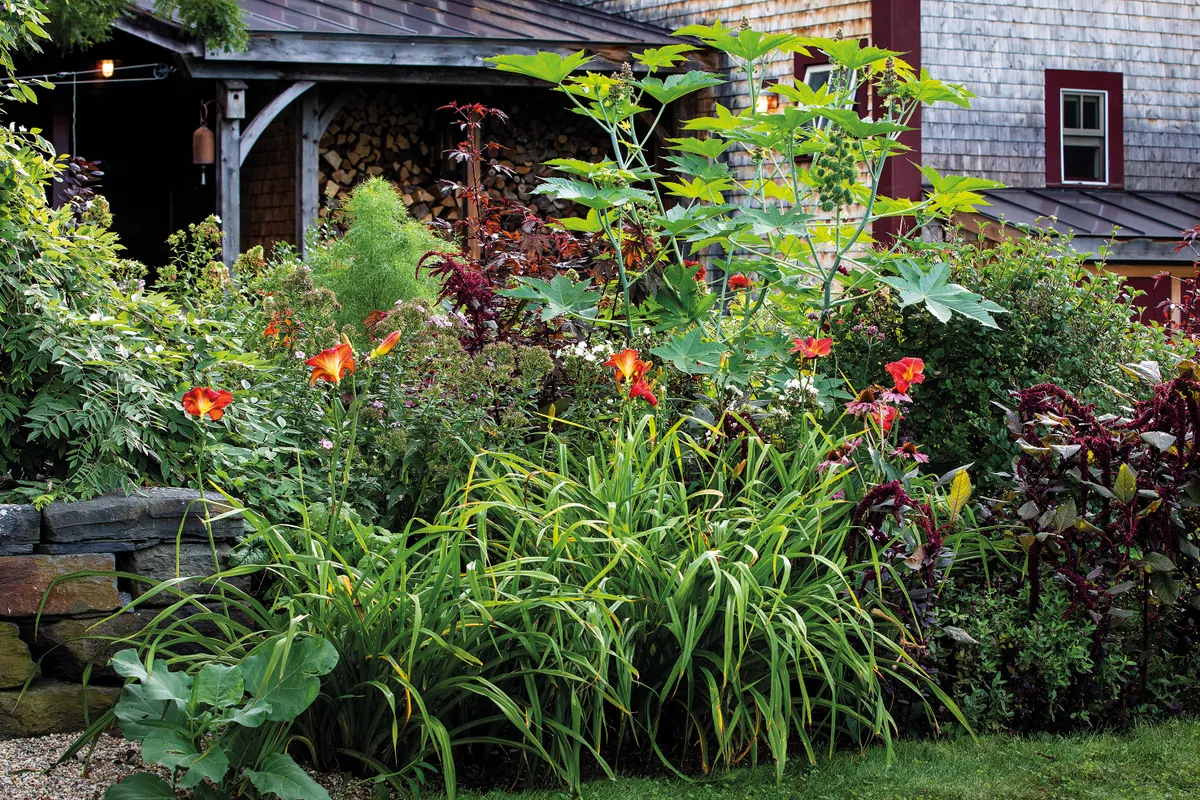
With the exception of the daylilies, this richly layered planting is all grown from seed. Emerging feathery cosmos foliage partners with darker Hibiscus acetosella ‘Mahogany Splendor’ while Ricinus communis ‘Zanzibariensis’, dramatic in leaf and flower and reaching 3-3.5m, adds further texture. The scarlet flowers of the daylilies Hemerocallis ‘Baja’ are a complete contrast to the velvety droops of their happily self-seeded neighbour, Amaranthus cruentus ‘Hopi Red Dye’.
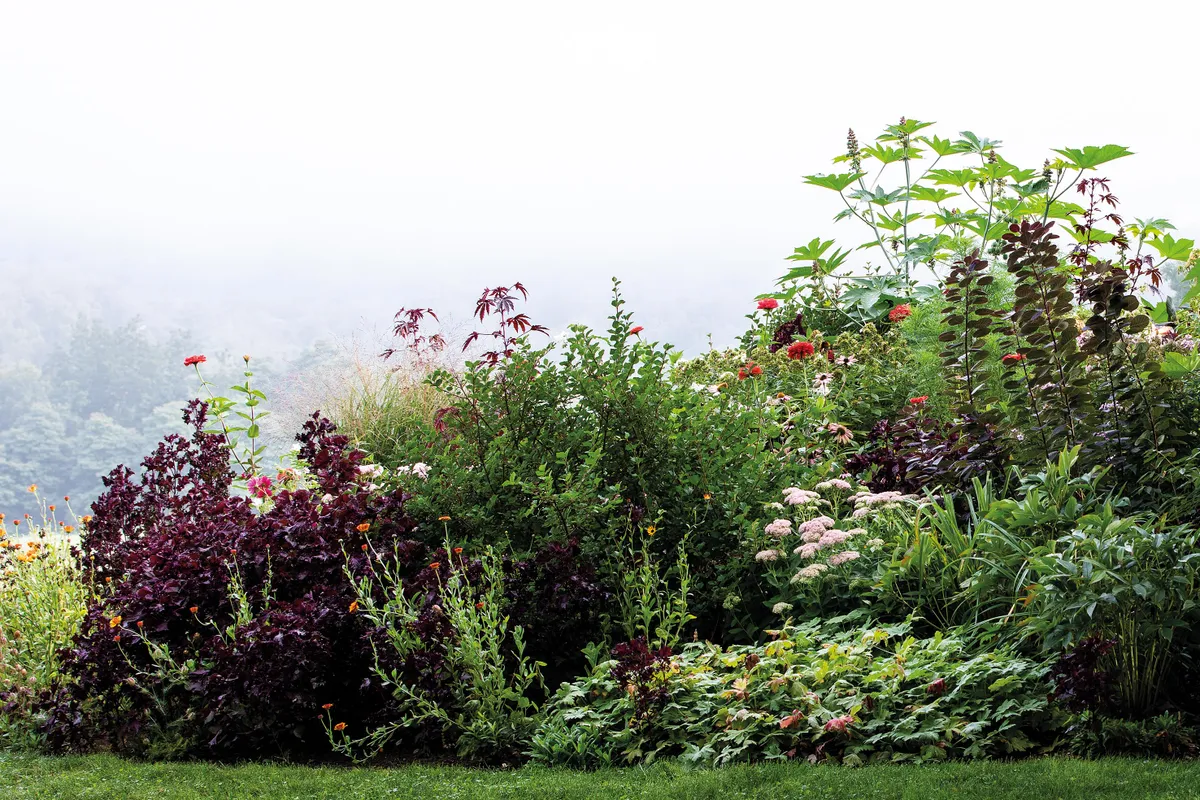
At the back of the flowerbed near the house (shown in the image above) the red Japanese herb Perilla frutescens var. purpurascens, which is also known as shiso or beefsteak plant, reseeds every year and mingles happily with orange Calendula officinalis lower down. Dashes of hot colour come from tall Zinnia elegans ‘Benary’s Giant Scarlet’. A pre-existing Cotinus coggygria adds further height, while the calming soft pink at the centre comes from Hylotelephium ‘Herbstfreude’.
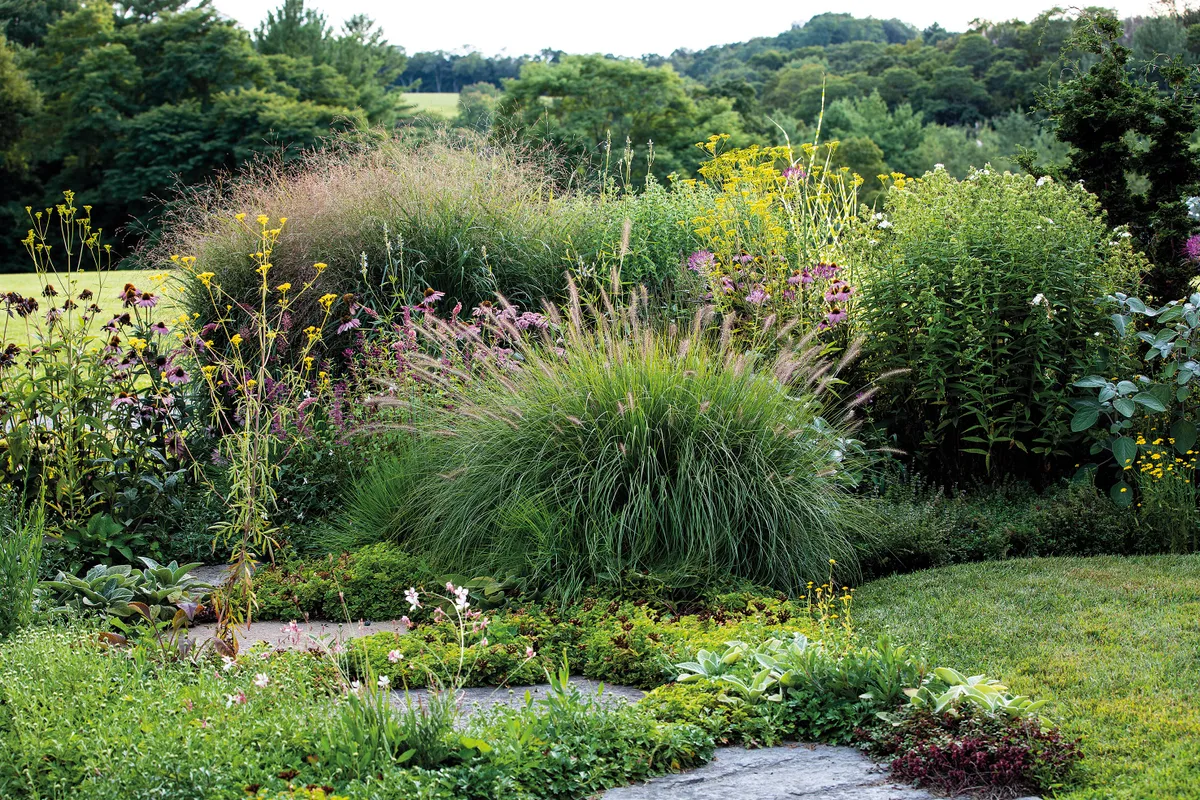
Rounded shapes bring in the surrounding wooded hills. Echinacea purpurea ‘Rubinstern’ enhances the red of Panicum virgatum ‘Heavy Metal’ and spots of bright yellow come from reseeded Patrinia scabiosifolia. A clump of Phlox paniculata ‘David', shadows Pennisetum alopecuroides ‘Hameln’ while Gaura lindheimeri ‘The Bride’ crosses the stone path at a lower level.
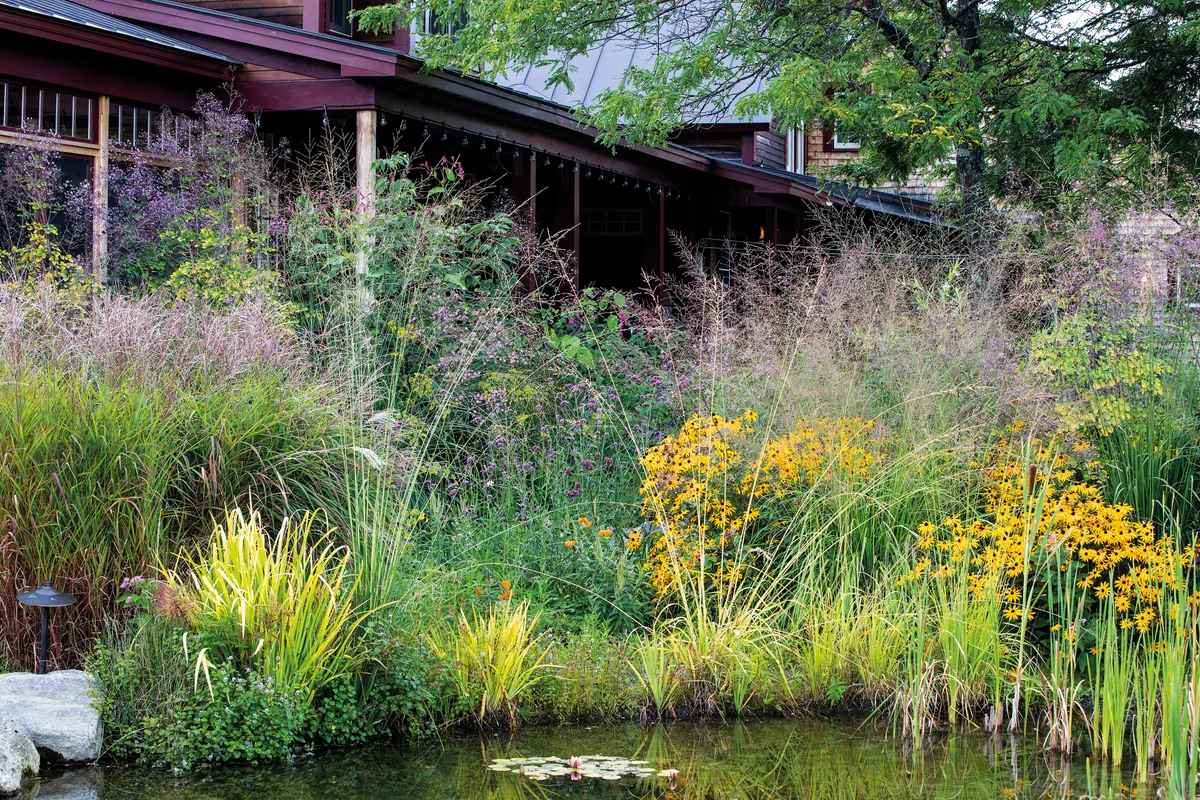
Helen collects seeds from the tallest specimens of the bright-pink annual Persicaria orientalis on the far left of this border. This one reaches 3.5m, and shines through airy veils of Thalictrum rochebruneanum. Tall tufts of Molinia caerulea subsp. arundinacea ‘Windspiel’ are given some solidity with Rudbeckia, which settled here from another part of the garden. Feathering the edge of the pond the bulrush Typha latifolia grounds the display.
